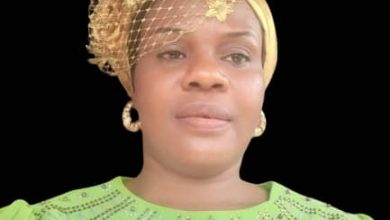Sports
18 mins ago
Nigeria International Looking to Help Nottingham Forest Avoid Relegation
Nottingham Forest is involved in a fight for survival this season in the Premier League…
Sports
24 mins ago
Sam Sodje urges NFF to appoint new Super Eagles head coach, warns team of the dangers of a late decision
Former Nigeria and Watford defender, Sam Sodje, has prompted the Nigerian Football Federation to expeditiously…
Entertainment
41 mins ago
Why I’m successful in music industry – Simi
Nigerian singer, Simisola Kosoko, popularly known as Simi, has revealed the reason for her success.…
Crime
44 mins ago
Man falsely identified as Bondi stabber by Seven begins defamation proceedings
The 20-year-old university student has engaged representation from leading barrister Sue Chrysanthou from 153 Phillip…
















